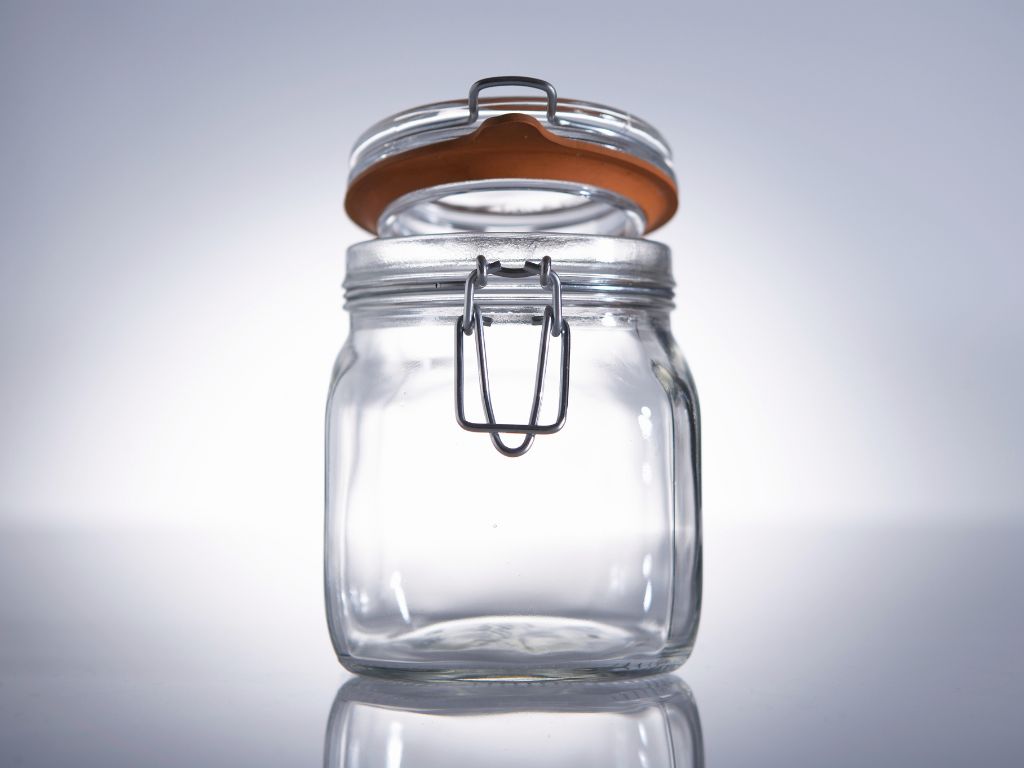Many home cooks opt for plastic bags as their sous vide vessel of choice given their convenience and versatility. However, more and more people are exploring the possibility of using glass containers instead due to concerns over BPA and plastic waste.
Glass containers offer some unique benefits as a sous vide cooking vessel, but they also come with their own set of drawbacks to consider. Let’s take a closer look at the pros and cons of using glass containers for sous vide cooking to help you determine if it’s the right choice for you.

Sous Vide Products I Use Every Day
As an Amazon affiliate, I earn from qualifying purchases.
Last update on 2025-03-03 / Affiliate links / Images from Amazon Product Advertising API
Pros of Using Glass Containers for Sous Vide
1. Glass Containers Are Non-Reactive
One of the biggest advantages of using glass containers for sous vide is that glass is non-reactive. This means flavors and nutrients from the food will not be absorbed into the vessel during prolonged cooking.
Plastic bags have the potential to impart a subtle plastic taste or allow smells and flavors to seep into the plastic over time. You don’t have to worry about this issue with inert glass containers.
2. Glass Containers Are Durable and Long-Lasting
High-quality glass containers are extremely durable and can be used repeatedly without wearing down. Unlike plastic bags which need to be replaced frequently, glass containers can last for years with proper care. The long lifespan makes glass a more sustainable choice.
3. Glass Containers Are Environmentally Friendly
Choosing glass over single-use plastic bags reduces plastic waste and is better for the environment. Glass containers are also oven, microwave, and dishwasher safe for easy cleaning.
4. Glass Provides Even Heat Distribution
The slick, nonporous surface of glass allows for excellent conductive heat transfer in a sous vide water bath. Glass helps maintain a consistent temperature throughout the food without creating hot or cold spots you may get with plastic bags.
Cons of Using Glass Containers for Sous Vide
1. Glass Containers Can Be Heavy and Bulky
One downside of glass is that it can be much heavier than flexible plastic bags or silicone bags. The heft and rigid shape also makes glass containers more cumbersome to work with.
2. Glass Containers Can Break or Crack
Glass is obviously far more fragile than soft plastic bags. There is a risk of breaking or cracking glass containers during cooking, transport, or storage. Cracks or chips in the glass also create areas for bacteria to grow.
3. Glass May Require Longer Preheating Time
The thicker material of glass containers causes them to be slightly slower to heat up to the water bath’s set temperature. You may need to wait 10-15 minutes longer for glass to preheat before adding food.
Alternatives to Glass Containers for Sous Vide
1. Plastic Bags
Plastic bags designed specifically for sous vide allow close contact with food. Many brands are BPA-free. The thin plastic quickly mimics the water temperature.
2. Silicone Bags
Silicone bags provide the flexibility of plastic with higher heat resistance. Silicone is non-reactive and containing antimicrobial properties. Easy to reuse.
3. Vacuum Sealer Bags
Vacuum sealer bags help remove air around the food to prevent oxidation and bacterial growth. Allows very close contact with the water.
4. Stainless Steel Containers
Stainless steel offers durability without fragility concerns. Excellent for heat transfer, but not transparent like glass.
Conclusion: Is Sous Vide in Glass Containers Recommended?
Glass containers provide a viable option for sous vide cooking thanks to their non-reactive and heat distribution properties. However, the potential for breakage along with bulkiness and slow heating make plastic or silicone bags better choices for most home cooks. Sturdy glass jars with ample headspace can still work well for cooking smaller, gentler items sous vide. But thicker cuts of meat and large portions may be better suited to more form-fitting bags.
Consider your own cooking needs and safety concerns to decide if sous vide with glass containers is right for you. When used with care and proper precautions, glass can offer an eco-friendly alternative to single-use plastics. But for most applications, high-quality plastic bags designed specifically for sous vide remain the best option to achieve great results.


![IMPRESA [10 Pack] Sous Vide Magnet Weights for Keeping Bags Submerged – Sous Vide Accessories to Stop Floating Bags & Undercooking – Weighted Magnets for Containers](https://m.media-amazon.com/images/I/41zHpl8G2lL._SL160_.jpg)

